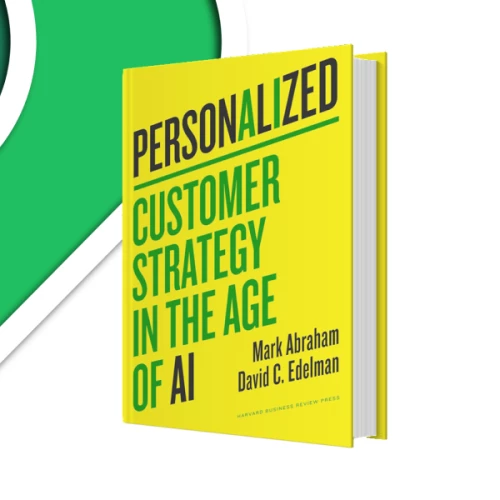AIは業務、企業が求める人材、チームの協働の仕方を急速かつ根本的に変えつつあります。変化は避けられないものの、変革の方向性を形づくることは可能です。
Featured Insights
日本語コンテンツ

Article
2025年10月28日
不確実性が「常態」として経営の前提に組み込まれている今日、日本企業は変化を受容し、主体的に勝機を見極める姿勢が求められています。BCGコンサルタントが考える、2026年時点でビジネスリーダーが検討すべき10の経営論点を提示します。

Article
2024年10月22日
2015年に刊行されロングセラーとなっている『BCGの特訓』の増補改訂版。「育つ側」「育てる側」の双方の視点で、人材開発のソフトな側面についてBCG社内で実践している取り組みを、広範な業界やビジネスパーソンの参考にしていただけるよう紹介しています。

Future of Work
Slideshow
2024年2月13日
従業員の離職を減らし定着を促進することは、それぞれの企業に特有の背景がある複雑な問題です。しかし、調査の結果から、企業・業界を問わない共通の解決策が見えてきました。それは従業員の「喜び」を重視することです。

Article
2023年3月27日
BHI Japanでは、日本に住む人々、特に未来を担う若年層にとってのウェルビーイングとは何かを探るため、独自の消費者調査を設計・実施しました。その結果を踏まえ、企業が目指すべき「ウェルビーイング経営」の在り方を考察します。
Reinventing Work
Video
2025年10月21日
Putting People at the Center of AI
Slack's Lucas Puente and BCG's Matthew Kropp share how human insight and clear leadership can turn AI from an experiment into real empowerment.

Article
2025年7月23日
As the importance of digitization grows, companies must find ways around scarce tech talent with a strategy that integrates both in-house and outsourced skills models.
Video
2024年9月22日
GenAI is an Exoskeleton that Boosts the Capabilities of Knowledge Workers
Developing an engineering mindset can amplify the power of generative AI for analytics, says BCG’s Daniel Sack.

Article
2024年4月17日
GenAI will impact roughly 90% of tech jobs and reduce costs by approximately 10%. Starting with tech functions, companies will need to mobilize talent in response.
On-Demand Workforce

Today’s companies can transform their talent model—and business strategy—by using digital talent platforms to access highly skilled freelancers.

Report
2020年11月17日
New research from BCG and Harvard Business School's Project on Managing the Future of Work suggests how companies can make the most of new talent models.

Many companies are struggling to hire and retain talent, but they fall short by not using a broad enough array of tools.

The pandemic has accelerated the trend of companies turning to digital talent platforms for highly skilled workers. Find out why these platforms appeal to workers.
Monthly Newsletter Subscription
Leadership by Design: Navigate the complexities of modern leadership
Leadership Development and Organizational Culture
Video
2026年2月6日
Inspiring a Leadership Culture Through Change
In a world of constant change, leadership is the difference between momentum and stagnation. CHROs are uniquely positioned to model change.

Article
2024年10月8日
The most effective way for a company to help its workforce adopt AI skills a five-step approach that includes assessing what’s needed and preparing people for change.

Article
2021年12月8日
Five key practices can unify leaders up, down, and across the organization—and spark concerted action.

Article
2022年3月17日
Today more than ever, we are relying on our leaders to deliver. We’re asking more of them than we have in decades.
CEOアジェンダ
先を見据えたCEOアジェンダの重要性は、これまでになく高まっています。BCGの論考などが、将来を読み解くヒントとなり、経営リーダーのみなさまが自信を持って進んでいく助けとなれば幸いです。
Book
Personalized: Customer Strategy in the Age of AI
Personalization presents a $2 trillion opportunity, and BCG's new book provides a playbook—including essential people strategies—to help you capture your share of this personalization prize.
Talent Development, Reskilling, and Upskilling
Video
2026年2月6日
Building a Skills-Based Organization
Skills-based organizations are trending, but transformation isn’t a checkbox—it’s a journey that demands focus, alignment, and a future-back mindset.

Talent can be hard to source and retain, even as segments of the US population lack access to satisfying, supportive jobs. Three initiatives are making a difference.

Article
2023年12月11日
When rapid technological change requires employees to dynamically upskill and reskill, again and again, a static college degree begins to seem less relevant.
To keep up with a rapidly evolving job market, hiring practices must also change. BCG managing director and partner Nithya Vaduganathan shares how to cultivate an inclusive work culture, inspire productivity, and unleash talent hiding in plain sight.
Learning Programs

Article
2021年11月22日
Companies that build advanced continuous-learning organizations can attract and keep the best talent—and create lasting competitive advantage.

Article
2020年7月14日
Revolutionary tech advances, the changing paradigm of training, and the rise of the bionic company demand radical rethinking of the corporate L&D function.

Article
2021年6月28日
By investing in the cloud, data, and analytics, institutions can improve student success, operational efficiency, and innovation in research and learning.

Focus
2020年11月17日
Companies compete on their capacity to learn quickly—and building an effective learning ecosystem is essential to gaining advantage in this critical area.













